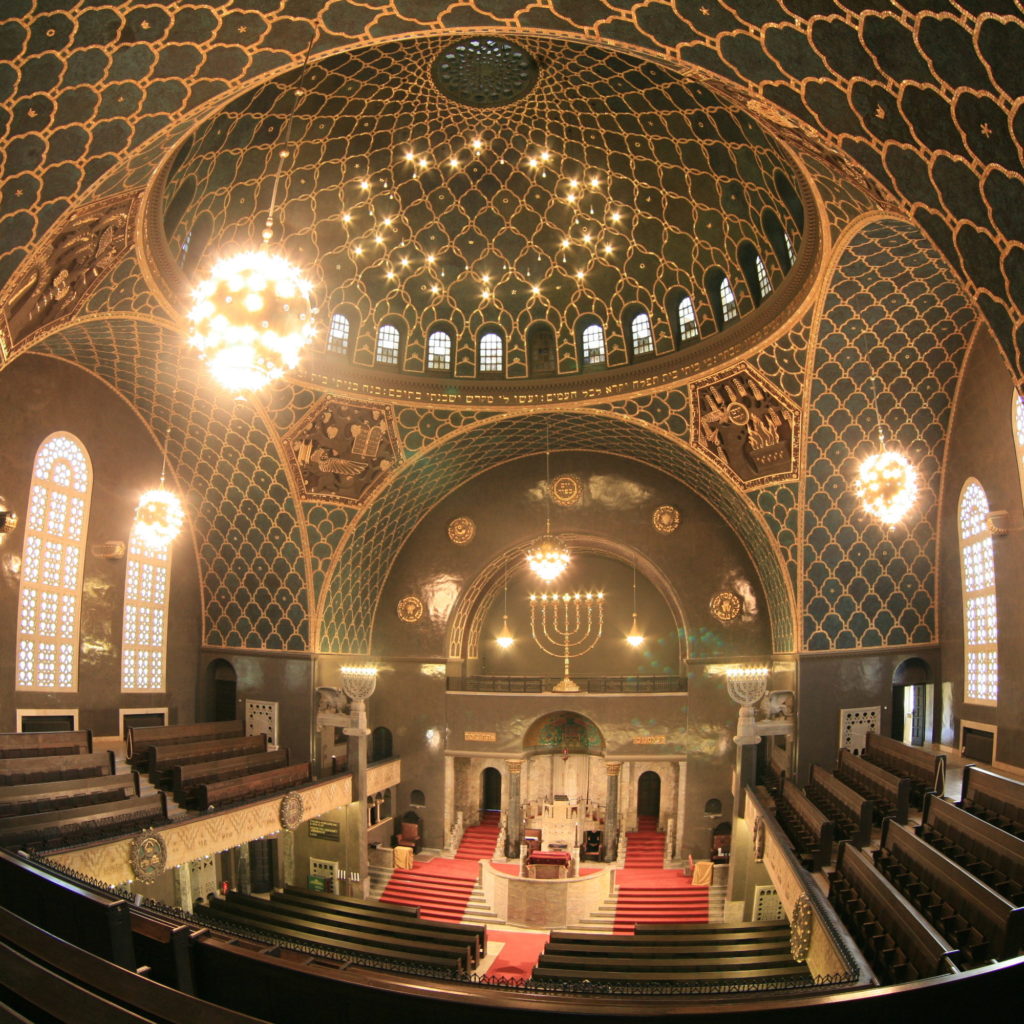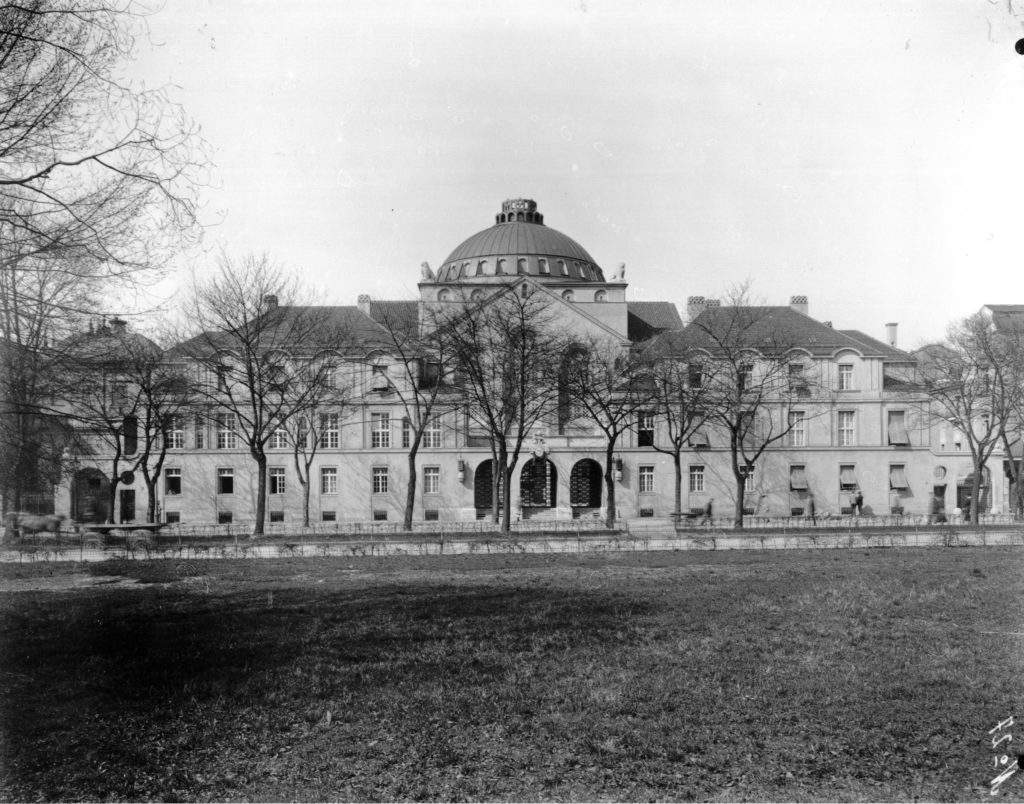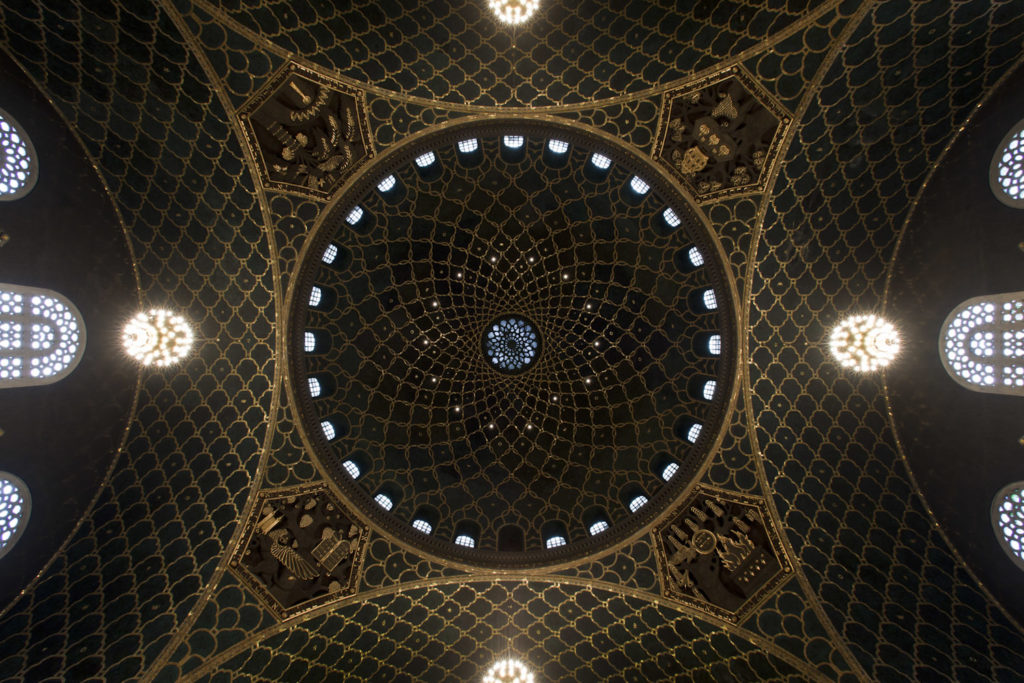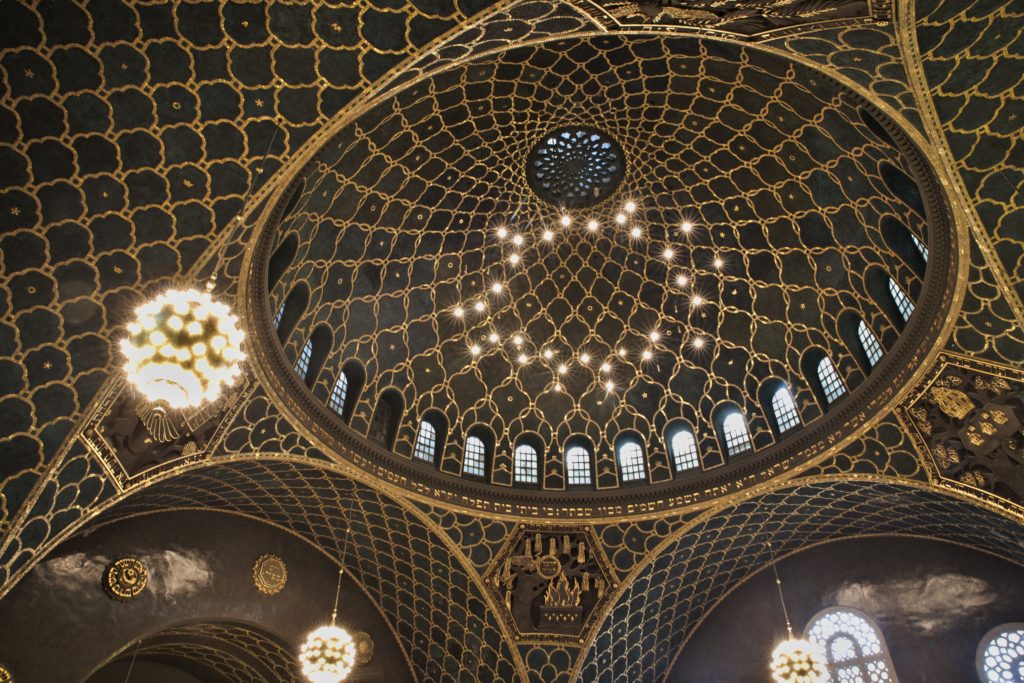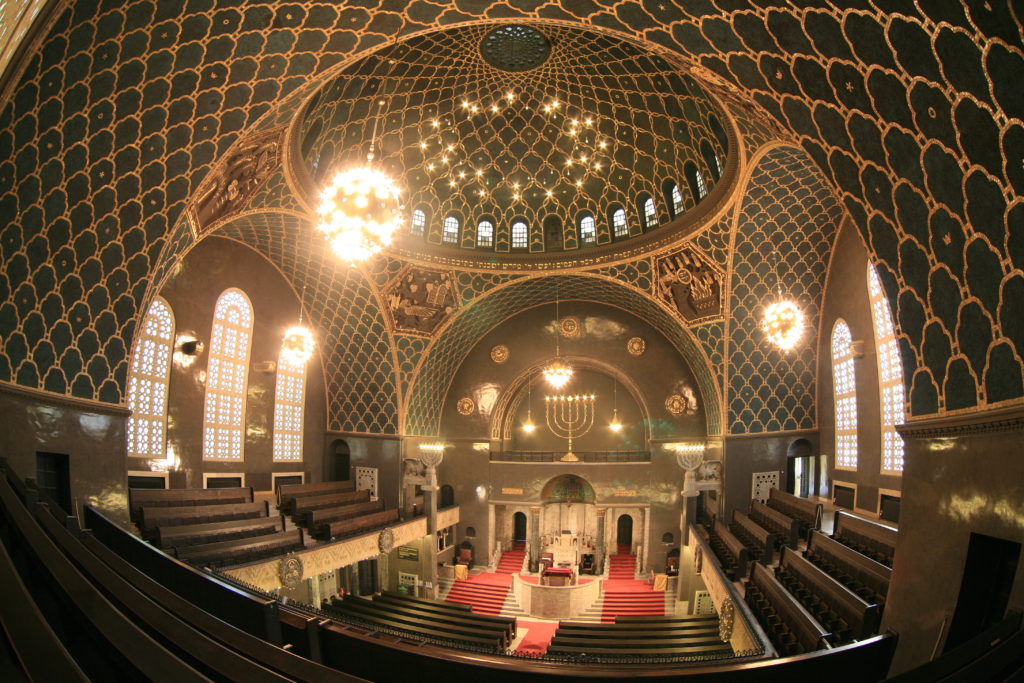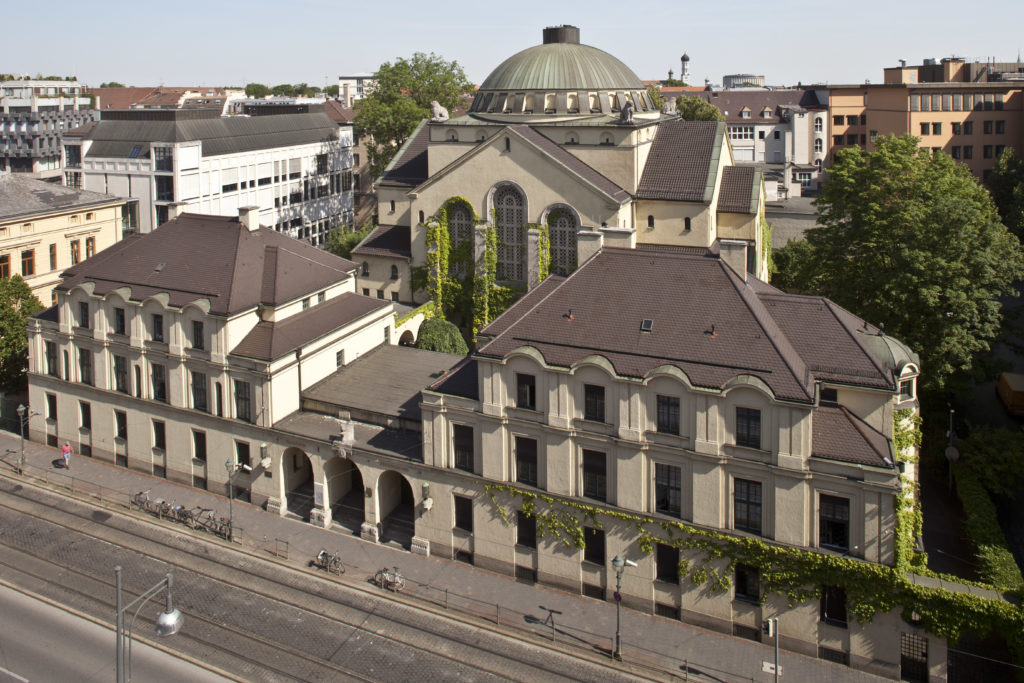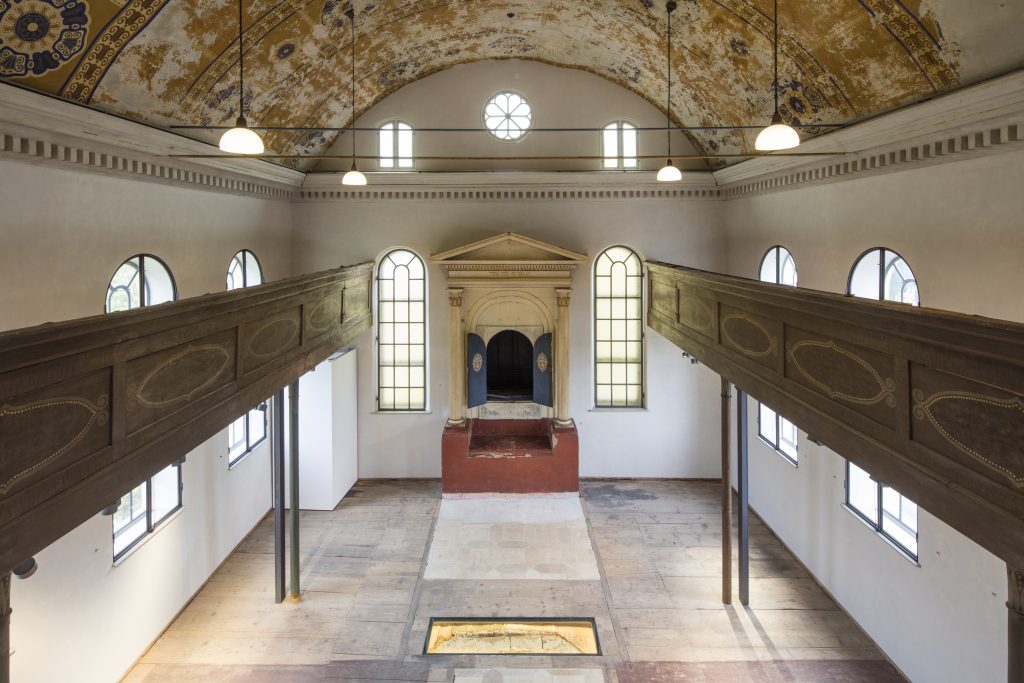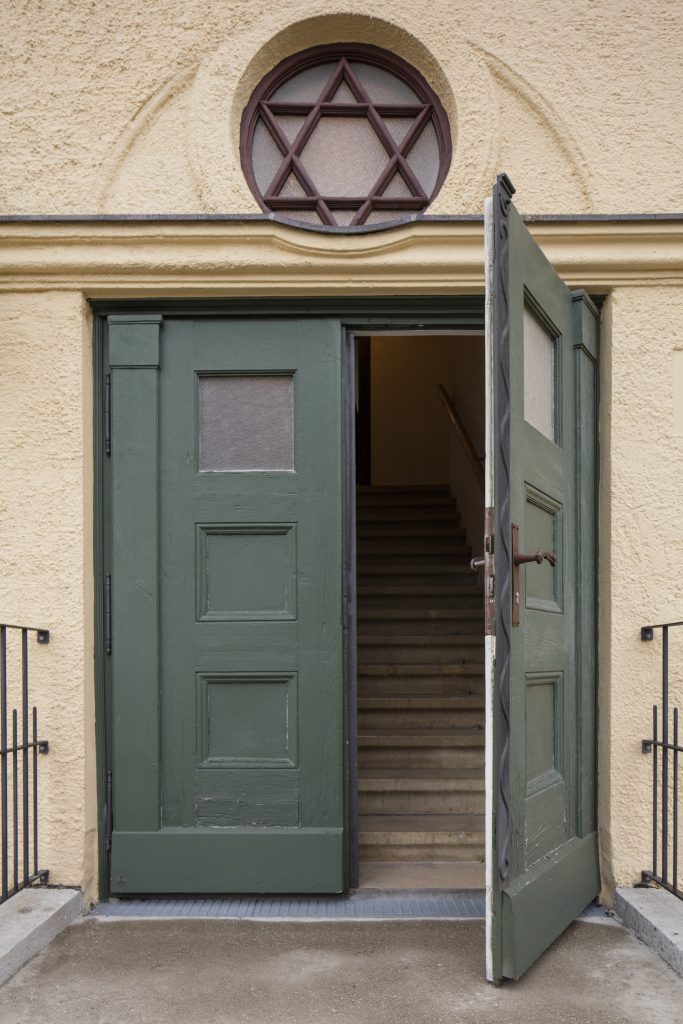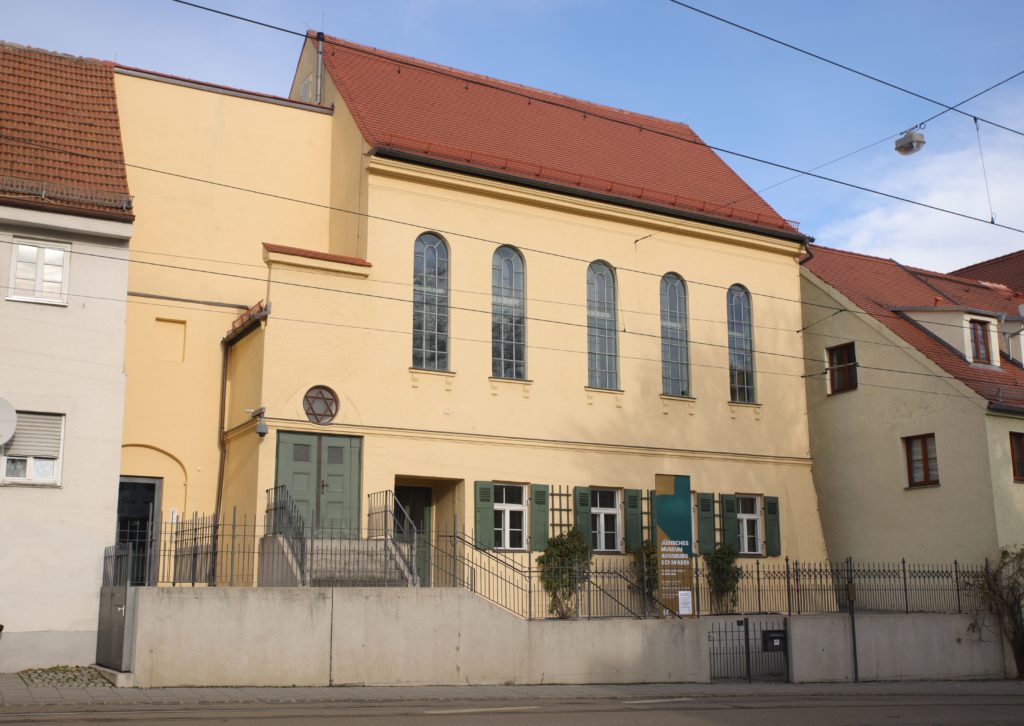The Great Synagogue in Halderstraße
The monumental synagogue on Halderstraße in Augsburg was built between 1913 and 1917 according to designs by the architects Fritz Landauer (1883–1968) and Dr. Heinrich Lömpel (1877–1951). It is an impressive testament to German-Jewish culture, an outstanding document of Jewish history in Bavaria and today once again the heart of a Jewish community. In fact, thanks to Jewish immigration from the post-Soviet states, the Augsburg Jewish community is now larger than ever before. In the November Pogroms of 1938, the synagogue was desecrated and set on fire, but the fire was extinguished because a filling station lay across the street. It took until 1974 to begin repairing the damages. The main sanctuary was finally rededicated upon completion of the renovation in 1985.
German-jewish self-confidence
The Augsburg Synagogue stands at a prominent location in the city, and its design – chosen by an architectural competition in 1912 – is unmistakably modern. These features testify to the self-assurance of the Jewish community that built the synagogue, a community of over 1,000 Augsburg Jews who felt they firmly belonged to civil society, had hopes for a better future and wanted a community center and synagogue that expressed in architectural terms their self-understanding as German citizens of Jewish faith.
Mix of styles
With art-nouveau elements, Byzantine and Orientalizing details and inspirations from the Jewish Renaissance, the Augsburg Synagogue combines a traditional, regional style of construction with state-of-the-art building techniques. Among its outstanding features are the 95-foot-high, reinforced-concrete dome covered with a green-gold mosaic and the extensive decorative imagery that was specially designed for the synagogue.
Former Kriegshaber Synagogue
The former synagogue in the Kriegshaber neighborhood also survived the National Socialist era. It is the oldest surviving synagogue in Bavarian Swabia and has been the museum’s second location since 2014. As the center of a rural Jewish community, it forms the counterpart to the large synagogue in the city center. Set up in a residential building at the beginning of the 18th century, it served as the center of religious life for the Jews in the once independent village for over two centuries. Thanks to the conservation concept of the renovation, impressive traces of its eventful history have been preserved inside.
